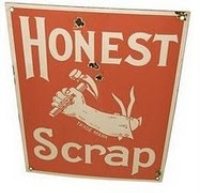It started with a cough.
At first, I thought it was allergies. Then I thought it was a cold; I often get sick when the weather changes. But the cough started in June, and by July, it had gotten worse; I couldn't go five minutes without coughing. It was difficult to work out because I couldn't stop coughing, and people moved away from me in public because they thought I had the coronavirus. But I tested negative for the virus, and I'd already received two doses of the vaccine and the booster shot.
There aren't that many specialists in College Town, so I wasn't able to get a doctor's appointment until August. My general care provider prescribed me some cough medicine and listened to my lungs, which he said sounded clear. He also recommended that I stop taking one of my blood pressure medications (I take two because I have high blood pressure due to my polycystic kidney disease) because he said it might be causing the cough, although I'd been taking both meds without any problems for more than two years. His supervisor dismissed my concerns when I got upset that he didn't call for any tests and made it seem like I was the one with the problem (I wish that witch nothing but the worst, including a lifetime of stepping on Legos and being stuck behind tall people with big hair at every movie and concert they ever attend.) But my cardiologist, who I also met with in August (I regularly have appointments with my cardiologist and nephrologist to monitor my health due to my kidney disease), also recommended that I stop taking that blood pressure medication. "I don't think it's anything serious," my cardiologist said.
They were wrong. Two weeks later, I went to urgent care. I literally fell to my knees in the shower one day because I couldn't stop coughing. I'd wake up in the middle of the night and cough for several minutes straight. The nurse practitioner prescribed me an inhaler and a week's worth of prednisone and amoxycillin, which helped slightly.
I went to another doctor, who ordered a chest X-ray. It showed a dark mass on my right lung, so then he ordered a CT lung scan. It showed that the mass was either an infection...or cancer. So he ordered a bronchoscopy, which meant they took pieces of my lung and examined it.
If it had been an infection, I would have only had to take some pills and go to the pulmonologist a few times. But it wasn't an infection. The bronchoscopy confirmed that I have stage 3 lung cancer.
I got the test results right before I had to go to work. My voice broke while I was teaching, and I swallowed hard so that I wouldn't cry in front of my students. I didn't understand how this happened. I had never smoked or done drugs. I didn't hang out with people who did. None of my blood relatives have lung cancer.
They did genetic testing, which confirmed that I have EGFR, a mutated gene that causes cancer. They said it was from an "acquired event", which means that something happened to me that caused me to get cancer. But they don't know what it was.
After that, things happened really fast. I had to get a port surgically implanted into my chest for chemotherapy. I started chemo a week later, and the doctor said I would need at least 3-4 rounds. I also started taking cancer medication for nausea because the chemo made me feel sick and tired all the time. I've been going to bed earlier, but I still wake up tired. I went shopping, and I felt tired just walking around the store.
Through it all, I struggled to keep up with my work. I was back in the classroom two days after the bronchoscopy. I also had the port placed into my chest on a day I wasn't teaching, and I was back in the classroom less than a week later. I only cancelled two classes because of my cancer treatment. When I got ready for work in the morning, I kept having to lie down because I felt so sick.
Even though I didn't feel good, I kept teaching. My work has always been very important to me, and it frustrated me that I couldn't put in a hundred percent like I normally did. It also frustrated me when I got emails that said stuff like, "Sorry I missed the last three classes, but I have a cold, so could you email me everything I missed?" I wanted to say, "I have freaking CANCER, and I'm still getting all my work done, so DON'T EVEN, okay?" But I didn't.
The chemotherapy they put me on is harmful to the kidneys, and it made my kidney function go down significantly in just three weeks. But my nephrologist told my oncologist, "What good is it to protect her kidneys if she doesn't survive cancer?" He also told me to do what my oncologist said. Because of the effects of the chemo, my oncologist kept me on the same type of chemo but reduced the dosage. He also required me to come to the hospital twice a week, every week, and be hooked up to an IV for two hours in order to receive fluids. It did help my kidney function recover, somewhat.
I met with my oncologist recently, who told me that I have to do a fourth round of chemo. Then they'll do another chest scan to see how much the tumor has shrunk, and about a month after my fourth round of chemo, I'll have a lobectomy and a lymph node dissection. Basically, they're going to remove part of my lung and the lymph nodes where the cancer is; the surgery will be done at a hospital several hours away because there's no thoracic surgeon in College Town.
The doctors told me that I'll have to stay in the hospital for at least 4-5 days after the surgery. I won't be able to drive for at least a month. I'll be in pain for weeks, possibly months. Because the surgery and the recovery from it will take up so much time, I made the very difficult decision to take a leave of absence from my teaching job. I will not be teaching for the Spring 2024 semester. Fortunately, I have a lot of paid sick leave because although I have been teaching in College Town for more than six years, I've never taken any sick days until now. It's harder for teachers to take sick days because if we're not there, there is no class. It's not always possible to find a substitute at the last minute, and even if one is found, they won't necessarily teach the class the way I want.
My mother is angry at me because I won't let her be there for the surgery or the recovery. It's one thing when she's ranting/screaming/crying on the phone or when I visit (I visit my parents for a few days twice a year, although this Christmas I didn't because my doctors say I can't travel; the cancer has severely weakened my immune system). The phone call or visit will eventually end. But when I'm recovering from the surgery, I won't be able to escape her. She hasn't been any help anyway. The other day I was at the hospital, and she called me crying; she was upset because some distant relatives had found out that I have cancer and demanded to know if I'd told them, which I hadn't. She conveniently forgot that she was the one who broadcasted my diagnosis on Facebook. I told her that I was receiving chemo, but she just kept crying and ranting.
My father got mad at me because although he'll be there for the surgery, I won't let him come with me to meet with the thoracic surgeon beforehand (my sibling will accompany me). He has given me some money to help pay my mounting medical bills, but he said that if I wasn't going to accept his help, he might as well not help pay the bills either. I told him fine and to keep his money.
My last blog post made me wonder who would be there if I ever ended up in the hospital. All I know now is who I don't want to be there. My oncologist told me, "You have just one shot at beating cancer. If it comes back after all of this, there won't be much we can do." So now, I'm doing everything my doctors tell me to do. After surgery, I'll have to take Tagrisso, which is a chemotherapy pill, for three years.
I don't want to die. There are so many things that I never got to do. I want to live a better life than the one I've had. And I hope that cancer won't prevent me from experiencing that.
What about you? Do you know anyone who's had cancer? Do you know anyone who's had a lobectomy and what their experience was like?







